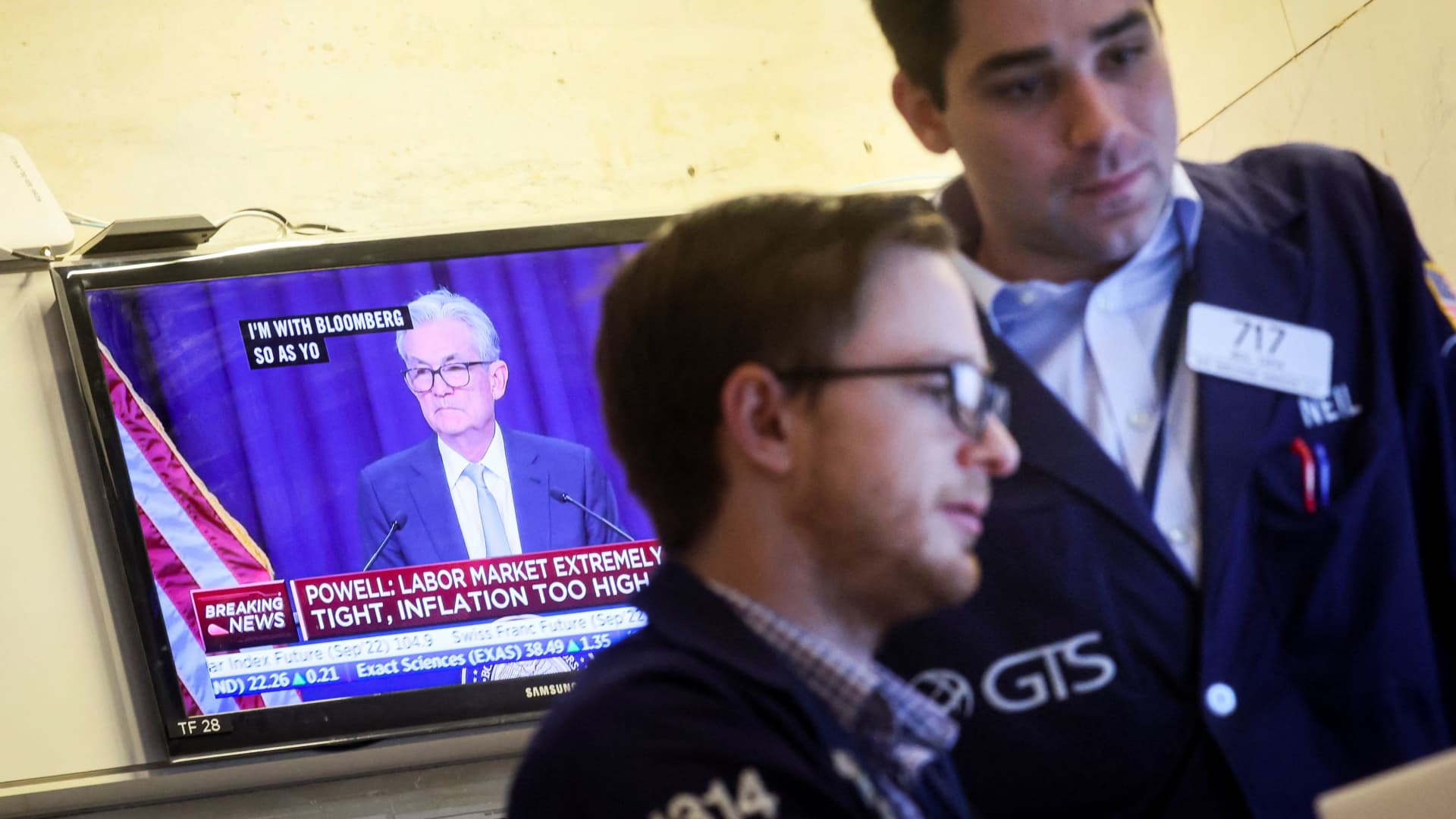
A shallow recession in the U.S. is a “virtual certainty” in the third quarter, according to Destination Wealth Management’s Michael Yoshikami, as the Federal Reserve launches a historic attack on inflation.
The Fed on Wednesday announced a 75 basis point hike to interest rates, its largest since 1994. Chairman Jerome Powell also signaled the Federal Open Market Committee’s intent to continue its aggressive path of monetary policy tightening in order to rein in inflation, after the U.S. consumer price index jumped by an annual 8.6% in May, the hottest inflation print since 1981.
However, the closely-watched Fed GDP tracker is indicating that a recession is on the horizon, and analysts expect the Fed’s sharp hiking cycle to further depress already slowing economic growth.
Speaking to CNBC’s “Squawk Box Europe” on Thursday, Yoshikami, founder and CEO of Destination Wealth Management, said the Fed’s nod ahead to another 50 to 75 basis point hike in July showed the central bank is “going to take any action necessary to stem inflation.”
“Now the problem we’re going to have here is are they going to tip the economy into recession when the consumer is already starting to pull back?” he said.
“The housing market in the U.S. is really locked up with mortgage rates close to 6% right now, and I think it’s a virtual certainty that we’re going to go into recession next quarter.”
Although a recession is now a widely accepted likelihood, Yoshikami noted that it does not necessarily mean long-term economic pain is inevitable.
“There is a belief that if we raise enough – let’s say we raise by 75 [basis points] and then we raise by another 75 – then if there is a problem in the economy, if it’s a shallower recession, which I suspect it would be in the third quarter, the Fed actually has some room now to come back off of some of those rate increases,” Yoshikami explained.
His firm’s base case is for a shallow recession later this year before the Fed cuts rates next year in order to reboot the economy once inflation is under control. Yoshikami suggested this will enable the U.S. economy to come out of recession, achieve meaningful growth and avoid “stagflation” – a period of high inflation, slowing growth and high unemployment.
Global recession looms?
There is also the potential for a U.S. recession to spread throughout the world.
Andrea Dicenso, vice president and alpha strategies portfolio manager at Loomis Sayles, now puts the chance of a global recession at around 75%.
However, she added that: “The Fed’s action yesterday, as well as other coordinated central bank action, has led us to think that perhaps that global recession is likely to be shallow and potentially already priced into some assets.”
Speaking to CNBC Thursday, Dicenso agreed that central banks would likely be able to limit the economic damage once the worst of inflation has passed.
Not everyone is as convinced that a recession is imminent, however.
Celebrity investor Kevin O’Leary argued Thursday that the U.S. economy is much stronger than people think, and there’s “no evidence” of an impending slowdown or recession yet.
″I’m not saying we won’t get one, but everybody that’s saying it’s coming around the corner next week is just wrong,” he told CNBC’s “Squawk Box Asia.”
— CNBC’s Abigail Ng contributed to this report




